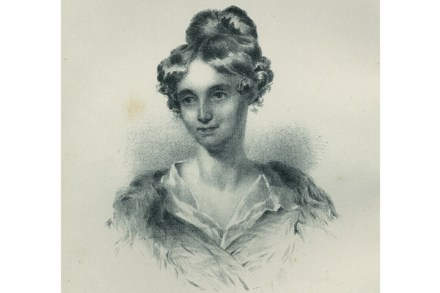A Charlotte Brontë of wood and stone
Sarah Losh is not forgotten (as the subtitle of this book suggests) in her own village of Wreay (pronounced ‘Rear’), south east of Carlisle in Cumberland. The locals refer to ‘Miss Sarah’ as if she were still alive, rather as they speak about Lady Anne Clifford at Appleby. Anybody who has visited the village and











